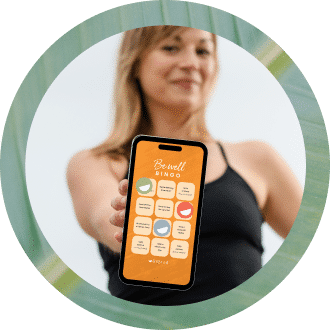
Blog
Mouth Breathing vs. Nose Breathing: Why It Matters for Your Health

Does mouth breathing vs. nose breathing really matter for your health and well-being? The short answer is yes and as a somatic and breathwork practitioner, I spend a lot of my time focused on breathing, in general.
Of course, you know the sheer act of breathing is essential to life, but how you breathe is just as important. Unless you mindfully tune into the rhythmic cadence of each inhale and exhale, this function just occurs without much—or any—conscious thought.
When you do tune in, however, you can significantly impact your health in so many (sometimes surprising!) ways. Here’s what you need to know about mouth breathing vs. nose breathing.

What Is the Optimal Breathing Method?
First, let’s start with the mechanics of breathing. An estimated 30 to 50 percent of adults breathe through their mouths. While this might seem like an innocuous habit, it can actually be the root cause of many health concerns. The mouth’s primary biological function is not to take in oxygen. Its function revolves around eating, drinking, smiling, communicating, and expressing ourselves. So let’s look at the two.
Nose Breathing
From an evolutionary stance, we’ve been created to breathe through the nose—but why does this matter? Imagine you just poured some water into a glass. This water flow starts at the bottom, then spreads out and rises to the top, so eventually, the entire glass is filled.
That’s how nasal breathing operates too: it activates the diaphragm muscles (located in your core), then expands the lungs to their fullest capacity. This maximizes respiratory function in order to circulate oxygen more efficiently—just as a full glass of water helps quench your thirst.
Mouth Breathing
Now compare that to mouth breathing, which occurs in short, rapid, shallow bursts from the chest. Unlike nasal breathing, this method only uses a small fraction of the lung capacity available, thus lowering the oxygen concentration that can reach your bloodstream.
When you make this a consistent, conscious habit, it can optimize your well-being in all sorts of ways—from stress relief and sleep hygiene to oral health and athletic performance, to immune strength and more. Let’s dive into all the amazing scientific benefits of nasal breathing.
Why Nasal Breathing Is Better than Mouth Breathing
I love my breathwork practice because it invites me to be mindful of how I breathe on a regular basis—even outside of doing breathwork. This is key because most breathwork sessions only last 5 to 30 minutes—it’s those other 23 ½ hours that determine how strong and efficient my normal lung capacity is, how my anxiety impacts my life, and so much more.
When it comes to mouth breathing vs. nose breathing there are many benefits to getting intentional about doing the latter. Here’s how breathing through your nose will impact so many areas of your life.
Humidification and Filtration
Does your throat ever feel dry after breathing out of your mouth for a prolonged amount of time? That’s because the respiratory tract needs moisture, which mouth breathing cannot provide. On the other hand, when you breathe through the nose, that nasal passage serves as a natural humidifier, as well as a filtration system. Here’s how this works:
The nose has bony structures called turbinates that moisten the air you inhale. While that process occurs, the air also gradually warms to the level of your core body temperature, so it’s easier for the nasal cavity tissues to absorb. Simultaneously, mucus and cilia (the small hairs in your nose) will filter out any airborne dust, allergens, and other toxins or pollutants, to ensure your lungs are clear of impurities.
It may not be something you think about often, but actually keeping your lungs clear of impurities is essential for overall health in so many ways:
- Clear lungs make breathing easier and more efficient.
- Healthy lungs are better equipped to defend against respiratory infections, making you less susceptible to conditions like pneumonia, bronchitis, and respiratory viruses.
- Clear lungs lead to better overall health and quality of life with less coughing, wheezing, and shortness of breath.
- A healthy respiratory system can support your body’s overall immune function by preventing harmful substances from entering the body through the airways.
Stress and Anxiety
Mouth breathing occurs in quick, shallow bursts, which activates the sympathetic nervous system. This causes a hyper-arousal state, increasing cortisol (stress hormone) levels. Whereas the slow, diaphragmatic rhythm of nasal breathing taps into the vagal nervous system to create a parasympathetic (relaxation) response.
Posture
If you’re a habitual sloucher with a forward neck or head pronation, mouth breathing could be a culprit. Fortunately, nasal breathing will correct those spinal misalignments because when you recruit the diaphragm to inhale, you’re also accessing the abdominal muscles to build core strength and stabilize posture control.
Athletic Performance
Mouth breathing vs. nose breathing is an important part of optimizing your athletic performance. elevate your athletic performance. When you breathe from the nose during exercise, you release nitric oxide. Nitric oxide is a vasodilator, meaning it tells the blood vessels when to expand, which boosts oxygenation to your heart and muscles.
This also increases CO2 output to maintain cardiorespiratory endurance, while taking fewer breaths. Ultimately, a slower breathing rate will enable you to perform more efficiently for longer periods of time, even at a high-intensity level. This small shift can have such a big impact on you!
Immune Support
Nitric oxide, which is manufactured in the paranasal sinuses, can also strengthen immunity and lower the risk of respiratory illness. Your nasal passages are lined with immune cells and antibodies that act as a protective barrier against airborne viruses, but if pathogens do sneak into the sinus cavity, nitric oxide will be secreted to neutralize the virus before it replicates. Mouth breathing won’t offer that protection—in fact, this habit could negate the body’s antiviral response. In a world where we want to find the best ways to boost our immune system, this can’t be overlooked!
Oral Health
Mouth breathing has adverse oral health implications too. If you breathe through the mouth while asleep, this obstructs the upper airway (nose, throat, sinuses). Over time, that obstruction can result in dental issues such as snoring, periodontal infection, enlarged tonsils, jaw pain, tooth erosion, fractures, or impaction. Meanwhile, nasal breathing opens that airway and increases saliva production. This flushes out bacteria, mitigates tooth decay, improves oral hygiene, and restores sleep quality—a win-win-win!
Mouth Breathing vs. Nose Breathing: The Difference Matters!
Breathing does more than keep you alive (and that is important!), but when you take the time to intentionally pull from your diaphragm instead of your chest, your mind and body are much more supported. But remember, it takes time to retrain your brain to use nasal breathing but as a part of your breathwork practice, start to make breath awareness a habit.
At every stoplight, while brushing your teeth, or taking a shower pay attention to your breath and practice breathing low, slow, and through your nose (Low in the belly/diaphragm). This one hack can change your life. Awareness is the first step to change!
Breathwork is a great tool to experience mouth breathing vs. nose breathing—while also reaping the benefits of a balanced nervous system, like less stress, more calm, and more! Join me for a live session of Exhale Hour to be guided through breathwork and learn more about this powerful practice.
share this post
Helping You Break Free!
Get your weekly delivery of inspiration—Pilates, nourishment,
& mindfulness—changing your relationship with food and your body.






17 thoughts on “Mouth Breathing vs. Nose Breathing: Why It Matters for Your Health”
Thank you for this blog. I kept hearing that mouth breathing wasn’t good for you, but I hadn’t found out why and know that I do it, especially overnight.
I had remembered the filtering aspect of the cilia from way back when at school, but thought there must be more to it than that.
I will now make more of a conscious effort to change this bad habit.
Thank you x
We’re so glad that you were able to find the information and resources that you needed to move forward towards even better health and wellness! We are cheering you on!
I’m curious. Are we also meant to breathe out through our nose? Or is that less important than breathing in?
This is a great question! We can recommend that if you would like to learn more about this topic, a great resource is the book Breath by James Nestor.
Thank you for the post. I know I am a mouth breather & snorer at night. Other than a c-pap machine, do you have any recommendations to help with this?
I’m wondering the same thing.
Any recommendations may be a quick fix. Speaking with your doctor or dentist would be helpful!
I seem to have a permanently blocked nose so always breathing through my mouth unless I think about every breath. Any suggestions?
We highly recommend the book Breath by James Nestor. It is a great resource!
I was wondering the same as Rachael— is the exhale supposed to be through the nose also?
I appreciate the clear and simple explanation of the science behind this and the health benefits— very pertinent to me right now! I will be more conscious of it and try one of your tips (maybe while brushing teeth) to help make it a habit. 👏🏻
We’re so glad that this topic resonates for you. We can highly recommend Breath by James Nestor. Its a great resource if you are wanting to learn more!
If you snore at night, does that automatically mean you’re breathing through your mouth? And how do you prevent it if you’re asleep?
These are great questions! While anything we suggest may be a quick fix, we would recommend consulting with a doctor for the best, personalized recommendations.
My son told me a few years ago about actually taping your lips together at night to help with your breathing and stopping snoring. You also have a better nights sleep when your mouth is closed/taped. There are special patches you can buy to help with this.
While we can’t recommend this since every person is unique and every situation is different, we would recommend consulting with your doctor or a dentist if this is an issue for you. James Nestor’s book, Breath, is also a great resource!
I enjoyed this. Ever since the breathwork sessions started at Lindywell, I have used them a lot for various things and feel so much better. Greater awareness to daily living and breathing is something I want to be more mindful of. Thank you.
We love hearing the way that breath work has made a difference for you, Tracy! We are cheering you on!